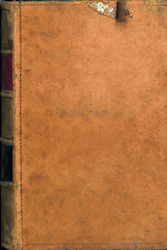[Telegram.]
He directs me to say that he declines your tender of volunteers, inasmuch as a despatch has this day been received by the Adjutant General of the army from Brevet Colonel Harvey Brown, 2d artillery, dated New Orleans, March 13, 1860, in which he says:
“I left Brownsville on the 8th instant. All was quiet on the frontier. The disturbances were believed to be over, and Cortinas to have given up the contest and retired into the interior of Mexico. Major Heintzelman has officially reported the war to be ended.”
This information being so much later and more direct from the scene of the late difficulties than you could have received at Austin at the date of your despatch, leads the President to believe that you are mistaken or have been misinformed.
Besides, there are now in Texas, ready for active service, two thousand six hundred and fifty-one troops, which force will soon be increased by the addition of ten companies, comprising eight hundred and forty-two men, now under orders to proceed there from New Mexico. Of these last, five companies are to be stationed at Ringgold barracks and five at Fort Clark.
The quota of arms now due to the State of Texas under the law amounts to one hundred and sixty-nine muskets, which, in an emergency, may be doubled by anticipating the quota for the next year, and which will be promptly delivered upon your requisition. As the money value of the arms for the two quotas does not amount to five thousand dollars, you will readily perceive that it is entirely impracticable to meet the requisition for arms, appendages, and accoutrements made in your despa’ch, the cost of which, at the lowest estimate, is within a fraction of one hundred thousand dollars.
The President further directs me to say that, with a sincere desire in every practicable way to meet the wishes of the governor and people of Texas, he conceives he has already performed his whole duty in the premises, under the circumstances.
Very respectfully,
Acting Secretary of War.
Governor of Texas, Austin, Texas.
Difficulties on Southwestern Border, House Documents, Volume 126; Volume 128, United States House of Representatives, U.S. Government Printing Office, 1860
During the 12 years following the Mexican-American War, there were present on the frontiers of Texas and Mexico many factors that tended to create disturbances. The topography of the country, the sparsity and general character of its population, the lack of an extradition treaty and of sufficient national authority, wild Indians of uncertain abode, the Mexican tariff system, all caused friction and gave encouragement to lawlessness which not only retarded the development of the region but often threatened to interrupt friendly relations between the two republics. [Border Troubles along the Rio Grande, 1848-1860, The Southwestern Historical Quarterly, Vol. 23, No. 2 (OCTOBER, 1919)]
